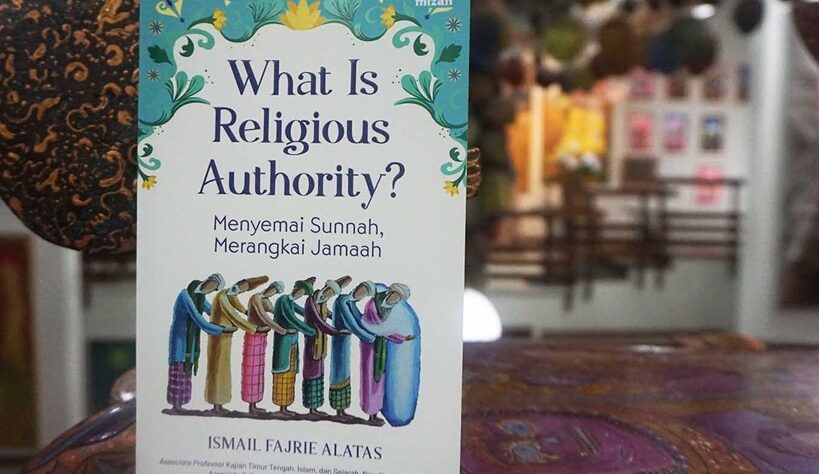For Muslims, the issue of religious authority is not simple, both in the terminological definition and its implementation in the experience of religious life. The problem of exactly Islamic authority, perhaps can be resolved and does not bring up many interpretations. Another case with the problem Who The owner of Islamic authority in the context of the nation and state in Indonesia.
It is no exaggeration to say that Indonesia is the most difficult Muslim country to answer the issue of who actually the single owner of religious authority has the authority to regulate and provide direction to Muslims to translate Islamic messages in life. Especially in society based new mediaAs explained above, where people are increasingly scattered, both socially and intellectually. Conditions like this make us barely determine who the owner of religious authorities and what they are.
In other Muslim countries, this issue can be answered by directing the index finger to the state/government or the designated and elected fatwa institutions, such as in Malaysia, Brunei, or countries in the Middle East. Islamic religious authority is the right to implement and order rules that are considered in accordance with God’s will.
In Islam, the idea of authority is certainly very problematic because of the assumption that the owner of a single authority is God who is contained in the Holy Qur’an. Following this definition, the owner of the authority in Islam is those who have the ability to invite and direct the actions in accordance with Islamic messages in the Qur’an. Those who are considered to have authority can be a person in private or scholars who are associated in organizations or institutions that get legitimacy from the government.
Traditionally, the authority in Islam is in the hands of scholars, kiai, or ustaz. It is they who have legal authority to interpret the Scriptures to solve the problems of the people through the fatwas they issue. The fatwa then became a reference for the behavior of the people in the community. Ulamalah teach the basics of Islam and instill Islamic values to the people.

On the one hand, authority in religion is complex and different from other aspects such as politics. There are power that controls, legitimacy that can be accepted by the whole community, as well as authority as the right to act. Naturally, indeed, Islamic authority is always involved in political matters. In the Indonesian context, for example, Muslims are not united under one religious authority.
When traced history, the creation of authority occurred in the early days of Islam (the time of the Prophet Muhammad and his companions). Then, new authorities emerged from circles Tabi’enin (generation after the Prophet Muhammad and his companions) and Tābi ‘al-tābi’īn (generation after tabi’īn) which is referred to as Ijtihadnamely efforts to explore Islamic law independently based on the assumption that there is no law that is directly stated in the Qur’an and Hadith.
Book What is religious authority? Ismail Fajrie Alatas’s work gives an overview of matters relating to religious authority. He explained that the religious authority of Islam and its role in arranging Muslim worshipers actually relied on the teachings of the Prophet Muhammad.
Basically, this book tries to reveal the figure of Habib Lutfi and the guardians of God in Indonesia, as well as other scholars in developing and mobilizing worshipers as a manifestation of the function of the transmission and social realization of the teachings of the Prophet Muhammad in daily life. Because basically, they are agents who channel religion to the community. Thus, the behavior of a person’s religious life will not be separated and is not different from the holders of religious authority in a place, both in the form of schools of schools, beliefs in opinions and decisions, or in the activities of amaliyah worship or social.
During this time, the spread of Islam is generally described as something linear, with standard Islamic teachings. However, these teachings are often conveyed and distributed contextually to root deeply, melt, and form new socio-cultural structures. In this case, following the actors of the spread of Islam, we can get a fundamental perspective and see it as a complicated process (p. Liii).
Book identity
Book title: What is religious authority?:
Writer: Ismail Fajrie Alatasas
Publisher: PT Bentang Pustaka
Publication Year: January 2024
Number of pages: x + 335 pages
ISBN: 978-602-441-331-6
Reviewer: Dimas Setyawan Saputro
Game Center
Game News
Review Film
Rumus Matematika
Anime Batch
Berita Terkini
Berita Terkini
Berita Terkini
Berita Terkini
review anime
